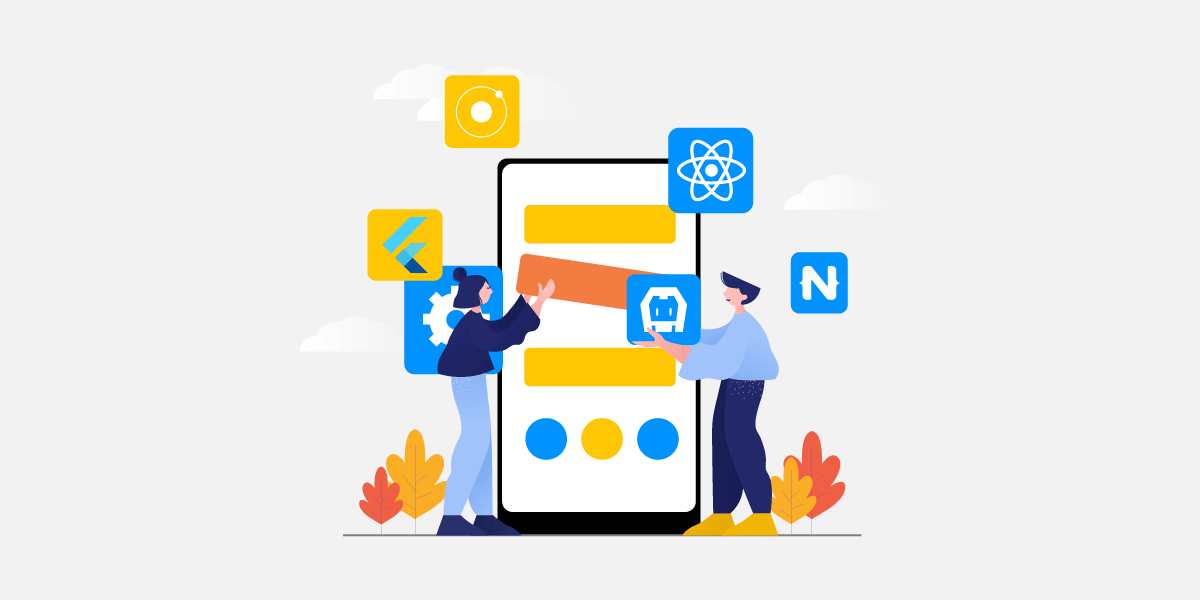In this article, you will find some interesting and beneficial information regarding both Augmented Reality (AR) and Virtual Reality (VR) technology. From exploring the nature of both technologies to understanding how AR and VR app development frameworks are facilitating app developers, we will cover it all. So, without making you wait any longer, let’s start our topic.
Augmented Reality (AR)
Augmented Reality (AR) technology has become one of the most renowned technological advancements in many industries. It is a process of innovation, creativity, and usefulness that allows developers to combine the features of a user’s physical surroundings with some virtual elements.
Virtual Reality (VR)
Virtual Reality (VR) technology is an amazing tech advancement that allows developers to create realistic 3D virtual environments that users can explore and interact with with the help of VR headsets and other devices.
What Are App Development Frameworks?
App development frameworks are a kind of software library that allows developers to utilize pre-built structures, databases, features, elements, tools, and other essential elements required for the app development process.
A List Of Virtual And Augmented Reality Mobile App Development Frameworks
In this section of the article, we will review some of the most utilized and preferred AR and VR app development frameworks nowadays.
Augmented Reality (AR) App Development Frameworks
A list of AR mobile app development frameworks is mentioned below.
- ARKit.
- ARCore.
- Unity3D.
- Unreal Engine.
- Vuforia.
- ARKit
First in line is a platform that is known to be Apple’s famous Augmented Reality software for iOS devices. The name of this app development framework is ARKit. The software is preferred by many developers for its ability to use the real-time data gathered from sensors and cameras on devices to create interactive apps that effectively interact with the environment surrounding the user.
- ARCore
Next in line is ARCore, developed by Google. Its key advantage lies in its hardware-free compatibility, making it accessible on both Android and iOS devices. ARCore enhances augmented reality experiences, making it a versatile choice for developers and users seeking seamless AR integration across a wide range of devices.
- Unity3D
It is obvious to include Unity3D when one talks about Virtual and Augmented Reality mobile app development. Even though the engine is assumed to be utilized only in gaming apps, it is now being utilized by many app developers to create unique AR applications of all kinds. With the help of Unity’s asset store, developers can easily get their hands on pre-built tools and features to elevate their app creation in no time.
- Unreal Engine
Next in line is another famous game development engine known as the Unreal Engine. With the help of this engine, many applications and movie CGIs have been developed and employed in the market. One of the benefits of Unreal Engine is that it offers extensive asset stores and libraries to make app development effective and simple. It provides everything that is needed to create realistic AR objects and images. Just like Unity, this framework is also not just limited to game app development; instead, Unreal Engine can be used to create apps of many types.
- Vuforia
Lastly, one of the emerging app development frameworks in the AR tech market is known as Vuforia. It is a powerful Software Development Kit (SDK) that weaves together aspects of real-world and virtual components by using the device’s screen as the lens. Vuforia also allows the swift recognition of both flat and three-dimensional (3D) items. The additional features of this framework allow the addition and creation of backgrounds, buttons, and effects, as well as the management of results and conclusions.
Virtual Reality (VR) App Development Frameworks
A list of VR mobile app development frameworks is mentioned below.
- Unity.
- Google VR For Everyone.
- SketchUp Studio.
- Oculus Medium.
- Unity
The Unity game engine is not just limited to AR app development; instead, this engine is known to be useful in creating many VR applications as well. For instance, Unity is used to develop VR apps for industries like gaming, engineering, construction, media and entertainment, automotive, etc. It allows developers to use a number of different assets and tools, like an editor, to create Unity 3D VR assets, designing tools, CAD, and collaboration tools.
- Google VR For Everyone
Google VR for Everyone is also one of the most beneficial app development frameworks for VR development. The tools offered by this framework are available on the Google VR developer portal, which allows professional app makers to create mobile applications of many types for multiple platforms like Android, iOS, web, etc.
- SketchUp Studio
Next in line is SketchUp Studio, which is used to create Virtual Reality applications of all types. It allows developers to design structures in 3D with its robust desktop tool and user-friendly interface. SketchUp Studio is mostly used for creating apps in the construction and architecture sectors, as it provides elements tailored specifically for the construction sector and helps in producing stunning visuals.
Another benefit of this framework is that it allows both Virtual and Augmented Reality mobile app development in different sectors, but mainly construction.
- Oculus Medium
Lastly, we will be discussing Oculus Medium, which is yet another beneficial VR app development framework. Oculus is known to be a famous provider of various VR platforms. It also provides development software named Medium, which allows developers to create 3D assets. It helps in making objects that can be modeled, painted, and sculpted.
To Wrap Up: How Is AR/VR Evolving Different Industrial Sectors?
AR and VR technology are both being implemented in multiple industries nowadays. For small-scale businesses, these technologies are beneficial because they pave the way for standing out in the marketplace. In the case of well-established businesses, AR/VR app development is helping them add innovative elements to maintain user retention and market value. Multiple sectors, like the game app development sector, retail, education, marketing, tourism, healthcare, and many more, are looking forward to incorporating AR/VR solutions with the help of a mobile app development company. The versatility of AR/VR technology opens up exciting opportunities for innovation across various industries.






